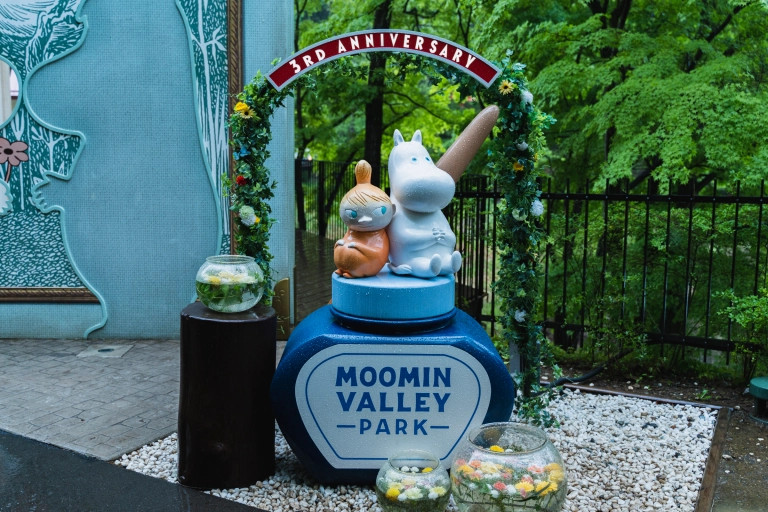
Never has a theme park left us feeling so introspective before.
Saitama Prefecture is primarily thought of as just a residential area to the north of Tokyo, since it has cheaper rent than the city center of Japan’s capital but still provides great commuter access to it. Saitama It is not, in any way though, known as a tourist spot. Even our Japanese-language reporter, Tasuku Egawa, who has spent about 30 percent of his adult life living in Saitama, could not tell you a single sightseeing spot in the whole prefecture.
At least, not until the other day, when he was invited to a press event at Moominvalley Park, a theme park based on a series of Finnish books about bipedal hippopotamus-like creatures called Moomin. There he discovered that Saitama does have something to offer, and it is well worth taking the time to visit…if you’re ready for it.
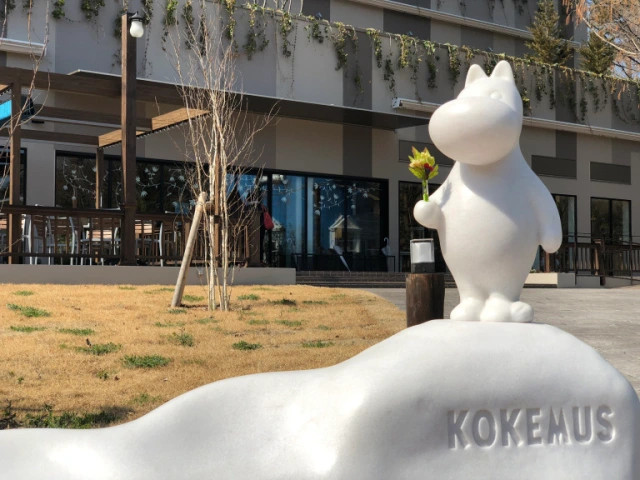
We had another reporter visit Moominvalley Park three years ago when it first opened, and she had the most fun and educational time there, but she was a Moomin fan. Tasuku, who doesn’t feel one way or another about Moomin, happened to be invited this time to attend their currently ongoing event “Moominvalley and Umbrellas,” and he had a very different park experience.
Upon entering the park, he foiund himself in the midst of the art exhibit, in which multicolored umbrellas have been strung up in between the trees of the park.
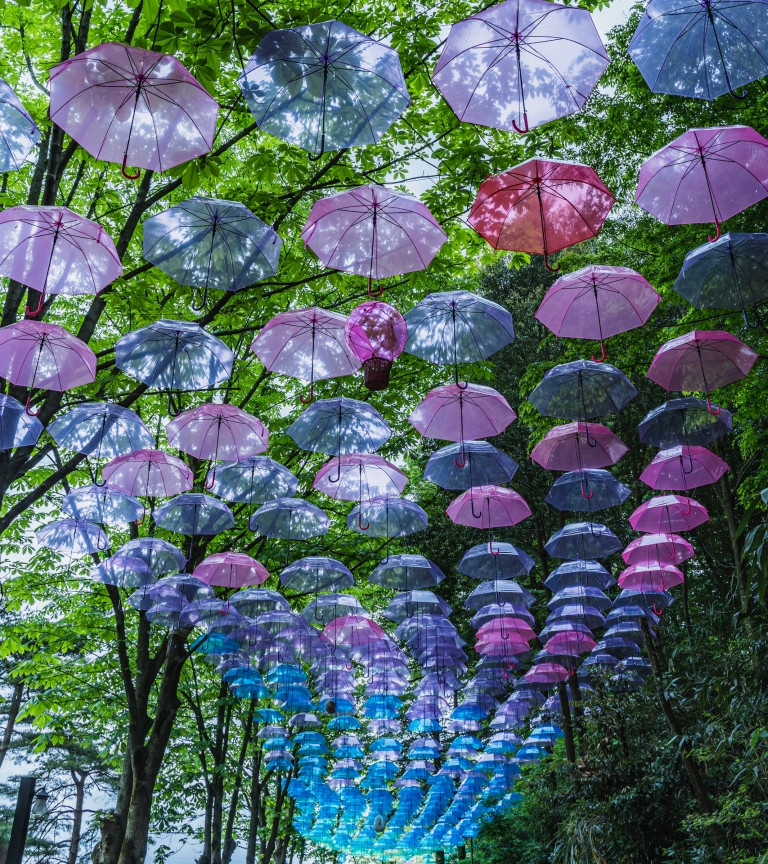
About 1,200 umbrellas of various colors are hanging in neat lines between the trees, starting at the park entrance. The resulting view is so beautifully picturesque!
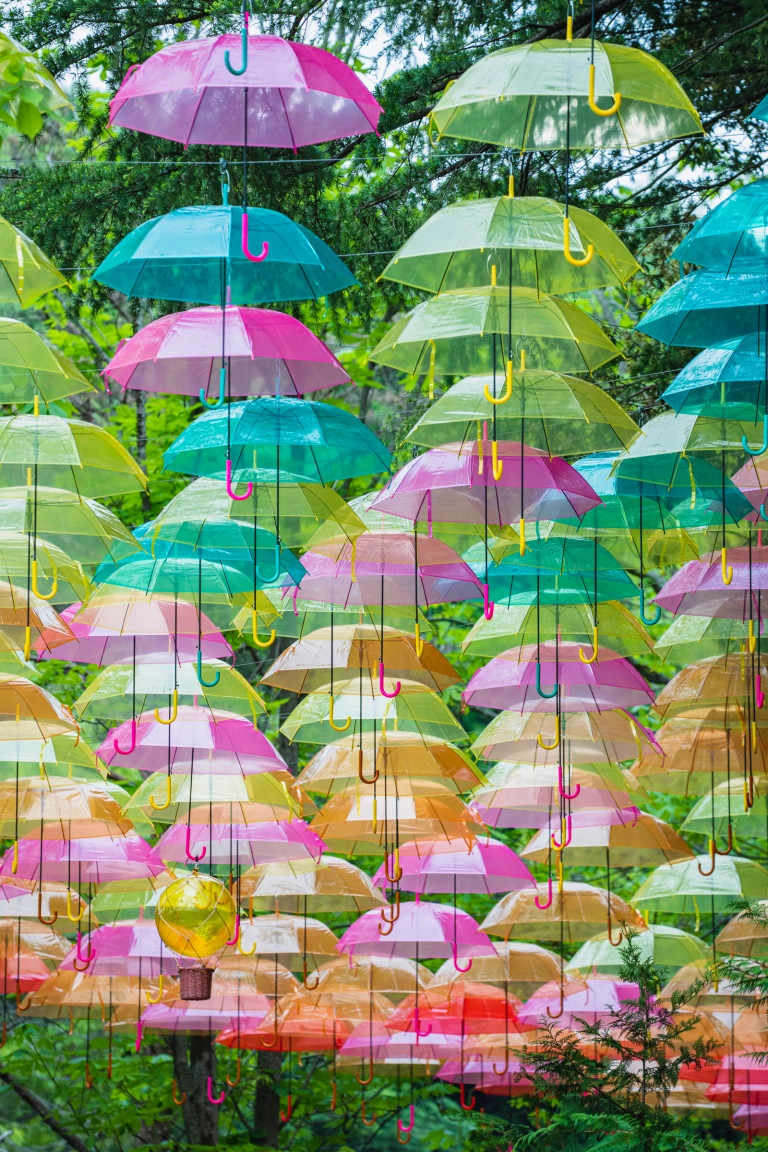
Moomin characters hang from scattered places among the umbrellas, but they’re somewhat hidden among the colors, making the umbrellas the main event for this stretch of the park.
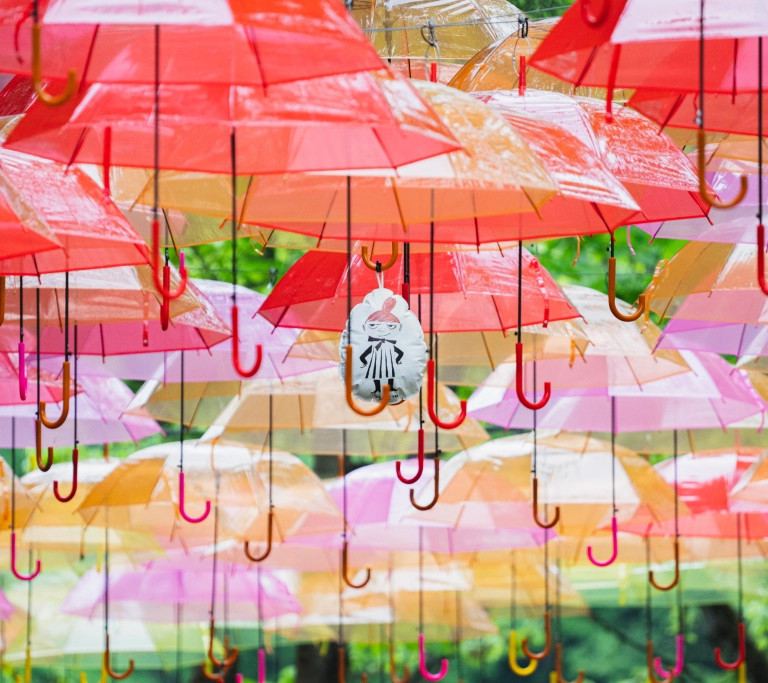
On the day Tasuku went, the weather was terrible, with heavy grey clouds unleashing buckets of rain, but despite the ironic fact that the umbrellas didn’t provide much cover from the rain, it was a beautiful sight even so. Tasuku thinks it might be the most picturesque spot in Saitama at the moment!
That was just about the end of the whimsy of Moominvalley Park, however. The rest of the park had a very different feel to Tasuku.
To be frank, Tasuku didn’t know much about Moomin before he came to the park. He’d occasionally seen the Japan-produced cartoon Tanoshii Moomin Ikka (“The Fun Moomin Family”) when he was a kid, so he had some idea of the characters and the stories about them, but he was no die-hard fan. As such, he expected Moominvalley Park to be just another theme park with the typical, manufactured, shiny cheerfulness you would expect.
For example, once he passed through the forest of hanging umbrellas, Tasuku found himself in the main part of the park, where he found this cute house with Moomin characters inside. How fun and quaint!
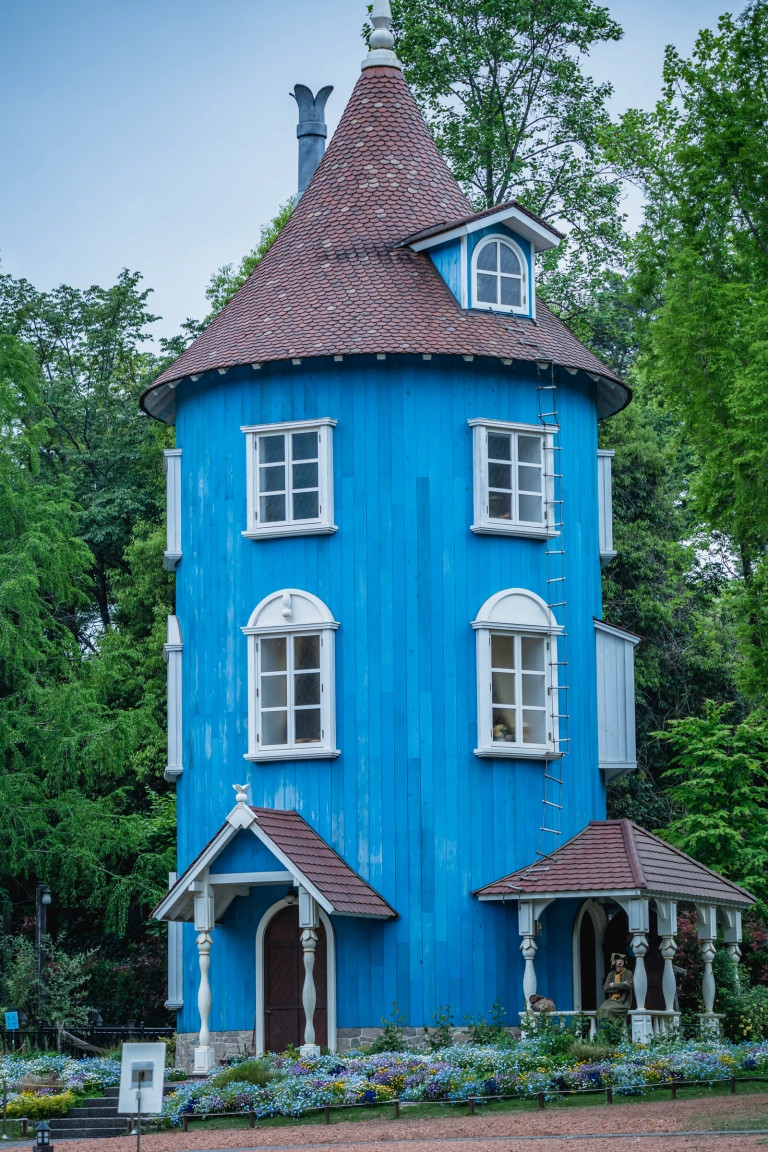
But actually, this kind of whimsicalness is limited to the area directly around this building. Moominvalley Park is, in fact, quite a serious place–or rather, it’s a very serious Moominvalley. After all, the Moomins don’t live in a theme park; they live in the middle of a natural landscape, which comes with plenty of danger, fear, and distress, and in order to overcome those difficulties, they have to work out their own solutions.
If you’re familiar with the Moomins’ stories, you’ll know their essence isn’t sparkling whimsy and colorful joy. They can actually be quite melancholy when the characters are forced to learn painful lessons through severe challenges. Sometimes the stories are even philosophical. Therefore, in order to recreate the true spirit of the Moomin world, it makes sense that this park would be different from your typical theme park.
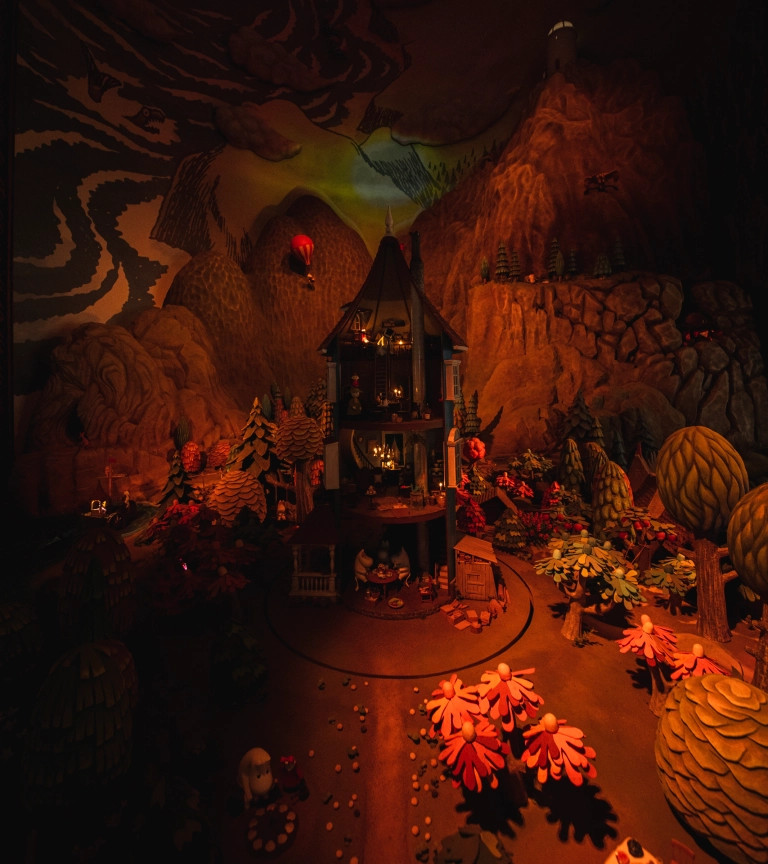
Throughout the park are little hut-like places called “Story Doors” where you can listen to narrations of Moomin stories, and the stories chosen are also quite somber. For example, one story playing by the Moomin House called “Moominpappa at Sea” tells of how prideful Moominpapa suddenly decides to move his family to a remote island. However, due to the harsh natural environment of the island, the family gradually starts to drift apart and become unhappy. They even included a part when Moominmama turns gaunt and haggard. The choices made are austere, but skillful.
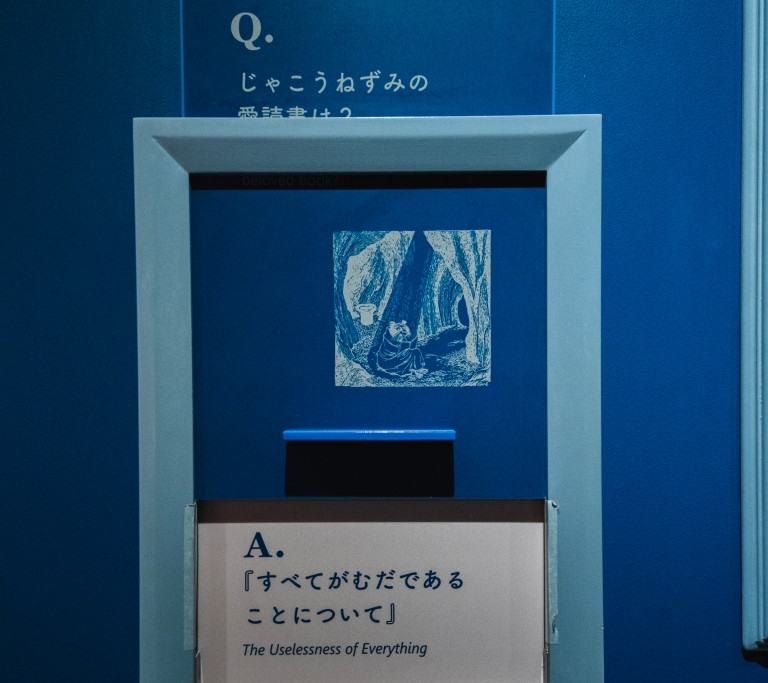
If Tasuku were to pick one thing that was simple fun in the park, it would be Hemulen’s Playground, a totally cool obstacle course-like jungle gym. Even Tasuku, who is almost 40, thought it looked like fun. Unfortunately, for safety reasons it’s limited to children aged 6 to 12; Tasuku thought it would be something really cool for kids in that age group, but younger or older kids are out of luck.
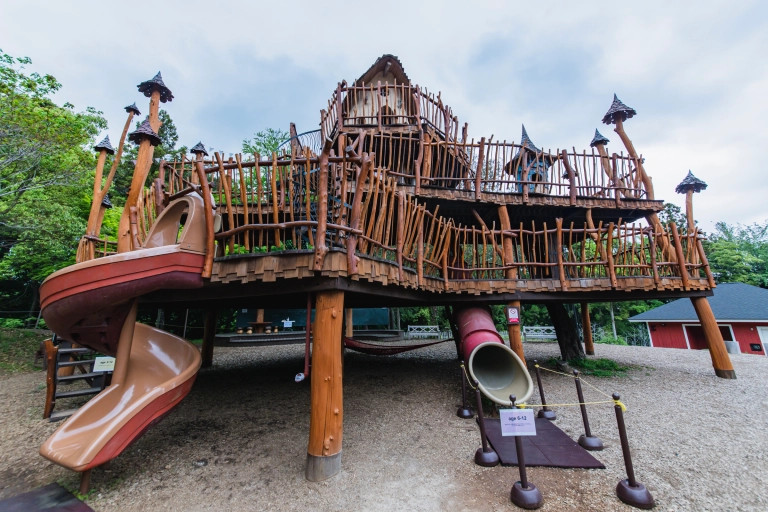
Besides that, there is the KOKEMUS, a museum-like building that is probably what offers the best example of the park’s theme. Here there are lots of weird exhibits based on the original Moomin books, which Tasuku thinks could possibly traumatize some children.
Contrary to how that might sound, however, he didn’t feel that the exhibitions were needlessly negative or in bad taste. Rather, he had the sense that they were purposefully guiding the viewer towards something. By disturbing the delicate sensibilities of children, these exhibits are meant to teach them something, to let them achieve some kind of internal growth, just like stories themselves. Or at least, that’s what Tasuku thought.
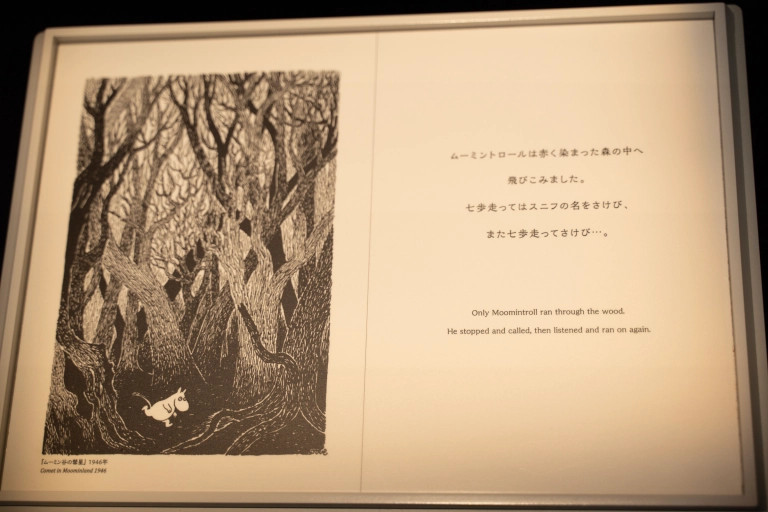
Of course, if you or your children are already big Moomin fans, then you’ll probably know to expect such features from the Moominvalley Park. But for Tasuku, who knew very little about Moomin to start with, it was a rather abrupt experience. Tasuku had been expecting the usual cheery, mass-produced kind of theme park, and so Moominvalley Park was weird and disquieting and came as quite a surprise. But once he took the time to understand what the Moomin stories were all about, it made a lot more sense.
And in the end, that’s kind of what makes Moominvalley Park so wonderful. The quality of that eeriness and disquiet is an excellent ode to the books: natural, instinctive, and unpretentious. If, on the other hand, it had been produced with some kind of manufactured, entertainment-level despair, it wouldn’t have achieved its aim. It’s exceptionally well-seasoned and well-done.
Put in the simplest of terms, Moominvalley Park is a true Moominvalley. Tasuku believes it has really captured the essence of the Moomins’ adventures. Perhpas it’s targeted toward a specific demographic, or really just toward Moomin fans, but it’s a theme park that really oozes a frank, simple darkness, which is what makes it one of a kind.
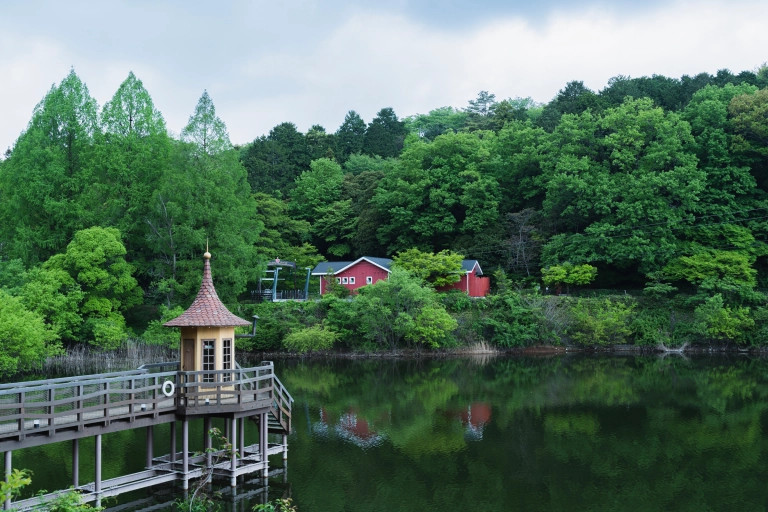
If you want to check out this strange theme park, it’s really easy to get there from Tokyo. Though the park is located in a rural area even for Saitama, with the closest station being Hanno, if you take the Seibu Ikebukuro Line from Ikebukuro, you don’t even have to change trains (just remember not to walk up or down escalators when you arrive). The Moominvalley and Umbrellas event lasts until July 3, so even if the melancholy of the Moomin world doesn’t appeal to you, there are some very Instagrammable spots that are sure to charm!
Location information
Moominvalley Park / ムーミンバレーパーク
Address: Saitama Ken Hannou-shi Miyazawa 327-6 Metsa
埼玉県飯能市宮沢327-6 メッツァ
Open: 10 a.m.-5 p.m. (Monday-Friday), 10 a.m.-6 p.m. (Weekends, holidays)
Tickets: 3,200 yen for adults (middle school age and older), 2,000 yen for children (elementary school students), Children under three are free
*Additional fees for some in-park attractions
Website
Images © SoraNews24
● Want to hear about SoraNews24’s latest articles as soon as they’re published? Follow us on Facebook and Twitter!

No hay comentarios:
Publicar un comentario